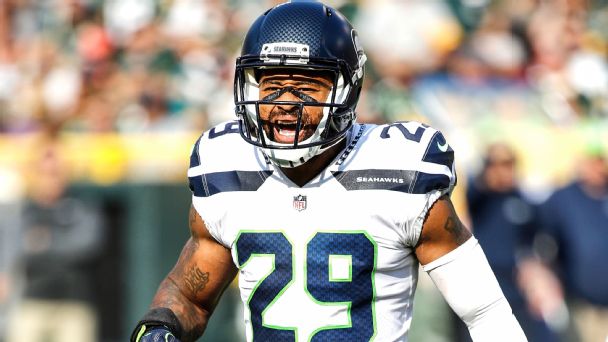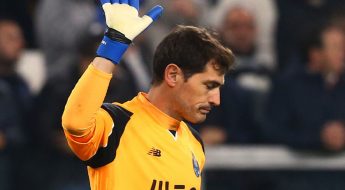Bucs rookie finds inspiration in brother who has cerebral palsy

TAMPA, Fla. — Tampa Bay Buccaneers rookie wide receiver Justin Watson can still remember how much his body ached, both the soreness in his legs and the blisters on his feet. It was during a particularly rough stretch of two-a-days the summer going into his senior year at South Fayette High School in McDonald, Pennsylvania.
He can also remember the look on his older brother Tommy’s face when he went to visit him at his group home shortly after. He remembers the car ride full of complaints to his father, Doug, about how grueling practices had become, and how his legs felt like jello during that walk toward the home’s activity room.
Inside was a group of about 30 teens and young adults, all confined to wheelchairs and facing challenges few could imagine — and in the midst of it all, Justin found Tommy, smiling ear to ear.
“He can’t speak, but he smiles and frowns and cries and is pretty responsive with his face,'” said Justin, 23, the Bucs’ 2018 fifth-round pick. “And he was just looking at me, as if to say, ‘If I had just one day in your shoes, I would run all day long, I’d practice all day long, until I was throwing up on the ground and my feet were bleeding, and right when I couldn’t get back up, I’d get back up and start doing it again.'”
That moment was transformative for Justin. He vowed never to complain again — not about football nor the arduous study sessions he would encounter to receive his Ivy League diploma nor, later, the daunting task of making the jump to the NFL, facing tougher competition than what he encountered at the University of Pennsylvania.
“From that moment on, he’s been my inspiration,” Justin said of Tommy. “Whenever it gets tough and whenever I have a bad day, I just realize my brother Tommy would find a way to smile every single day.”
‘He’s the toughest kid that I know’
Tommy has cerebral palsy, also known as CP, a neurological disorder that is the result of a brain injury or malformation. It affects motor skills, body movement, coordination, muscle tone and balance.
Tommy, 28, can’t speak or walk. Doctors inserted steel rods along his spine to help correct his scoliosis because it was crushing his organs. He used to be able to feed himself his favorite food, mashed potatoes, but now he relies on a feeding tube.
The Centers for Disease Control and Prevention estimates that CP appears in anywhere from 1.5 to more than four per 1,000 live births. About 40 percent of children with CP have limitations walking or can’t walk at all, with 25 percent who were able to walk as children but lose that ability as they get older. About 30 to 50 percent also have some degree of cognitive impairment.
When Tommy lived with his family, he required around-the-clock care from nurses until he was 21. He now gets that care at an independent-living facility, which is about 15 minutes from the Watson family home in Bridgeville, Pennsylvania.
“He’s the toughest kid that I know,” Justin said. “He’s battling every day, and he fights through things every day. If my legs are burning on the last set of squats, that’s nothing compared to what he goes through.”
It’s Tommy he has thought about during NFL workouts in the oppressive Florida heat and since being sidelined during mandatory minicamp because of injury. It’s Tommy to whom he’ll pay a visit before he reports back to training camp, where he’ll likely start sixth on the depth chart as he tries to play catch-up, probably needing to beat out Freddie Martino, Bobo Wilson and Bernard Reedy to secure a roster spot.
Tommy has always been Justin’s sounding board and source of comfort. When Justin was having second thoughts about attending Penn’s Wharton School — one of the top undergraduate business programs in the country, with an acceptance rate of just 7 percent and students with an average SAT score of 1499 — he went to his older brother.
“I was really scared at first,” said Justin. “He’s a great listener, and I remember sitting there, and I was nervous as heck, and I was like, ‘I think I’m going to go to Penn, but I don’t know.’ I was worried about the school being too hard and if I could do Philly and everything else, and I said, ‘What do you think?'”
“It was probably the biggest smile I’ve ever seen on his face,” Justin said. “To me, it was just reassuring. It seemed like he said, ‘Go for it.’ And I did. It ended up working out great with both football, and I’ll [have graduated] as an Ivy League grad. … I was talking about school being hard and a challenge and he’s looking at me like, ‘Man, you’d be surprised what Watsons can go through. I go through harder things than that just by getting up in the morning.'”
‘Thought everyone had a brother that has special needs’
Justin has also drawn inspiration from his parents, Doug and Terri Watson, who did their best to make life as normal as possible for their four children — Justin, Tommy, Alex, 24, and Abby, 18 — despite Tommy’s condition. They scheduled family vacations around Tommy’s summer camps and got the other three involved in competitive sports.
“I kind of think that growing up, I thought that everyone had a brother that has special needs, or that has someone in their family that needs a little extra care,” Justin said. “I don’t think I fully appreciated how much of a sacrifice it was at first for my parents — their first-born child born with cerebral palsy, and not only the financial stress it puts on you, but just the emotional and mental stress.”
Doug and Terri each had to work two jobs to support Tommy’s medical care. (The CDC estimates the lifetime of medical costs for a person with CP exceeds $1 million.)
Though Tommy would spend about seven hours each day at the Western Pennsylvania School for Blind Children, which also caters to medically fragile students, Terri would work for several other families providing child care.
Doug would work during the day at The Bank of New York Mellon in Pittsburgh doing client service management before working nights at a smaller company doing computer security. He’d pick up extra shifts so he could take off when one of his children had a game, or even to coach one of their teams. Terri would have dinner ready for them before they all got home, then head out the door for a few more hours of work.
“She would pack herself Cheerios and wouldn’t even get to eat the dinner she had made after a full day of work,” Justin said, adding that his parents didn’t sleep well for years because they’d worry about Tommy in the middle of the night. He never heard them complain, either.
“My parents would never say, ‘We had to do this because of Tommy’ or, ‘We had to do this or that.’ That’s just what they needed to do,” Justin said. “They needed to work that many hours to make sure we never needed anything and to [make sure] we were more well off than they were. I don’t think I’ll ever be able to fully appreciate it. But definitely when I got to college and saw, ‘Man, my parents were working 12-hour days for me, I better be putting in at least 12-hour days myself to say thank you to them.”
‘He’s a special young man’
Penn football coach Ray Priore could see that work ethic in Justin. He got the sense Justin was playing for so much more than himself.
“He is a special young man,” said Priore, who had coaches from other sports marvel at Justin’s work habits, wanting to clone him because he’d be the first one out onto the field, 45 minutes early. “He showed up to practice every day as if it was a work day. I think that goes back to a great upbringing — great family life, parents are wonderful people. [They] instilled the values that [he] has, being resilient, and I think that comes from his family background, that resilience and that toughness.
“I’m not sure he had a bad practice in four years or a practice with [less] effort. He’s driven that way. … We always talked about, ‘Success is a choice.’ You can choose to be average or you can choose to be successful. Justin chose to be successful. In everything, he attacks.”
Justin put the betterment of the group before his own needs. He was offered a prestigious internship at Goldman Sachs going into his senior year that would have put him in position to earn six figures right out of college. He turned it down to stay in Philadelphia to work out with his teammates.
He played nearly every skill position on offense aside from Wildcat quarterback. He also attended every special-teams meeting his senior year despite not playing a single snap with the unit, because he felt it was important to know what they were doing at all times.
“I’ve been coaching football for a long time, and I’ve had a lot of real good players that have played, so don’t take this the wrong way, but he’s a young man that really embodied everything as a coach that you say you want to be around,” Priore said. “Whatever it is, he has it.”
What impressed Priore most, though, was the bond Justin developed with a little boy named Vhito DeCapria, who had been stricken with cancer and was adopted by the Quakers football team. Priore saw empathy in Justin’s eyes and a tenderness in his heart.
“It was special to watch this sort of connection between the two,” Priore said. “I think there was definitely a special connection between Justin and Vhito that you sort of [saw] that the twinkle in the eye with it … a very, very special bond.”
Justin understood many of Vhito’s fears, because he lived them with his own family. While Vhito lost all of his hair and went through 40 days of chemo, Tommy had been in and out of the hospital back home.
“He embraced it,” Priore said of Justin. “It’s amazing how many things you can put on a young man’s lap or in his hands — how much can he carry? And he’s had to carry a lot.”
“You can work your way to great things, and you can make a difference, and I know he made a difference in that young man’s life, I’m sure, and in his brother’s life and his family’s life, as well.”
‘The way he’s wired is exactly how you want them’
Justin fits the resilient and committed type of player Tampa Bay general manager Jason Licht and coach Dirk Koetter talked about all offseason. In fact, Licht even told the Glazer family, who own the Bucs, that Justin was one of his “favorite sleepers in the draft.”
“The way he’s wired is just exactly how you want them,” said Licht. “He just loves the game. He’s a blue-collar kid who, one of his major inspirations is his older brother, who has cerebral palsy. It’s just a great story.”
Before Justin suffered an injury during organized team activities, you could see the makings of a physical receiver and a tough blocker who could hold his own, even against cornerback Carlton Davis, a second-round draft pick who has gotten a lot of reps with the first-team defense.
“I really like him,” said offensive coordinator Todd Monken. “He’s big, fast, physical, smart. That’s what you’re looking for: a guy that can develop. Moving forward, those kind of guys rarely underachieve when you have that sort of measurable skill set. So, he’s looked really good at the start and what we looked for.”
No matter the distance
Because of Tommy’s condition, travel has been nearly impossible. He wasn’t able to go to any of Justin’s college games, but it never stopped him from supporting his brother’s football career. While the rest of the family traveled to Philadelphia during the draft so they could be with Justin while he studied for exams, Tommy watched it on TV.

“They said that whenever my name got called, when the soldiers read, ‘Justin Watson,’ they said he started laughing and smiling,” Justin said of Tommy. “It’s awesome. Because you’re not sure if he realizes it or not, but they said he had the biggest smile. And my aunt went and drove there right after to see him and she played a couple of videos that were online and she said he was smiling the whole time, so it was cool to hear that.”
There’s a tiny glimmer of hope that if Justin makes the Bucs’ 53-man roster, Tommy might be able to go to the game against the Cincinnati Bengals on Oct. 28, but it’s still more than four hours of driving.
The good news is that NFL games in the NFL are on TV far more than Penn games.
For now, Doug and Terri visit Tommy about three times a week. Tommy has many friends, including a roommate who has CP. He enjoys swimming, which has served as a form of therapy for him for much of his life thanks to a generous donation years ago from the Make-A-Wish Foundation, something Justin has thought about getting involved with now that he’s a pro. Right now, though, it’s one step at a time.
“He gets me through the hard stuff on a day-to-day basis — the workouts, the extra workouts that you don’t feel like doing, when you’re on your last sprint and you’re thinking about dogging it,” Justin said. “[And] late in games, when the going gets tough — like this year, we were on a four-game losing streak; times like that, when it’s tough to keep getting up, [when you] keep getting hit, just to keep getting up and keep moving forward, that’s when I think about my play and dedicating it to him.”
Justin doesn’t want people to feel sorry for his brother. Not everyone understands what it means for a family that has a child or an adult with special needs. But the Watsons all view Tommy’s life as a gift — a miracle — and they feel fortunate they can bear witness to it.
“I wish more than anything that he didn’t have to go through what he has to go through on an everyday basis, but he truly is a blessing,” Justin said. “If someone with cerebral palsy like my brother can find a way to smile, we can all find a way to smile.”




